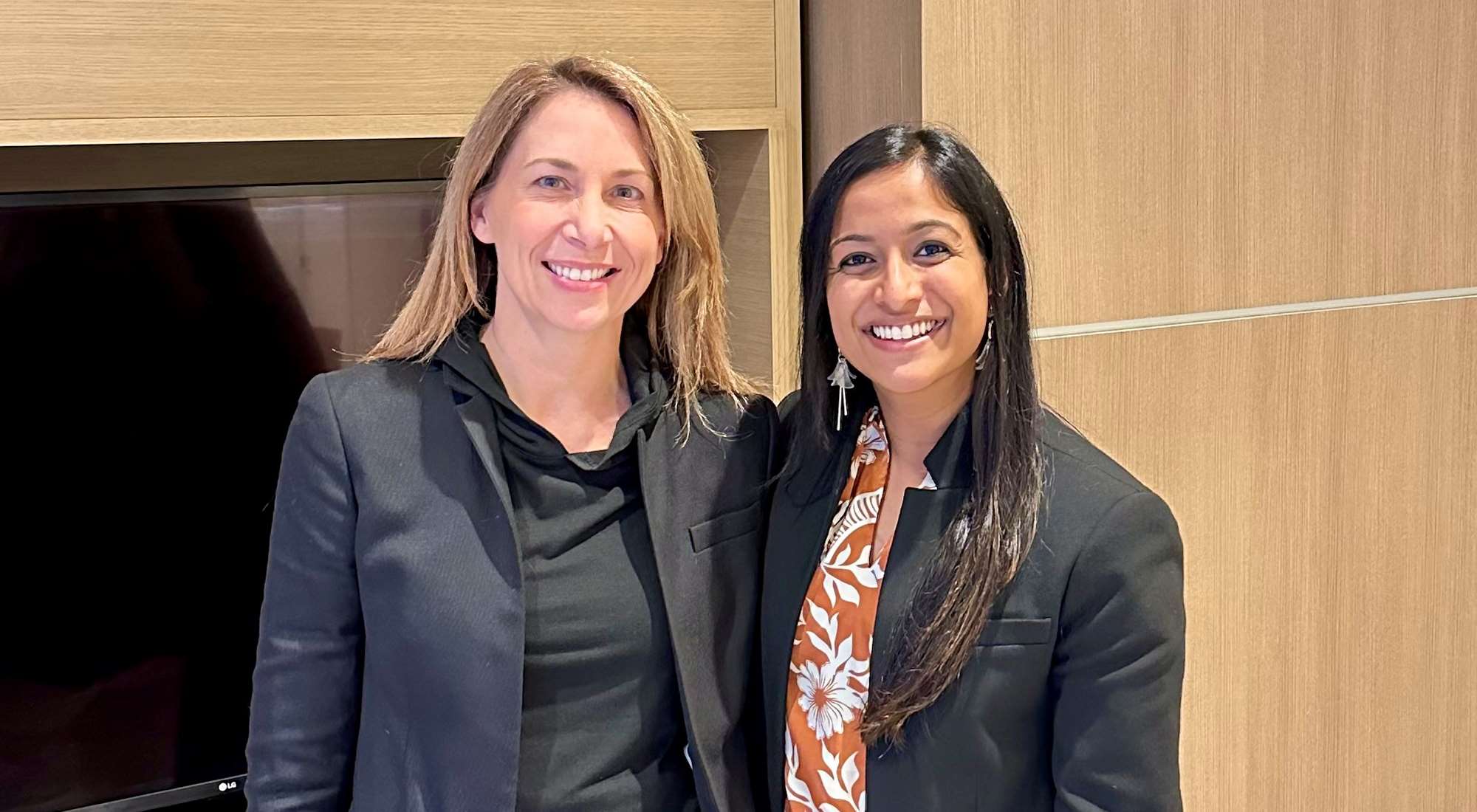MCW Student Earns Prestigious AHA Early Career Investigator Award

(l-r) Dr. Julie Freed and Gopika SenthilKumar at the American Heart Association’s 2023 Scientific Sessions. (photo courtesy of Gopika SenthilKumar)
Gopika SenthilKumar, a Medical College of Wisconsin MD/PhD student in her fifth year of training, has been recognized as the winner of the Elaine W. Raines Early Career Investigator Award by the American Heart Association’s (AHA) Council on Arteriosclerosis, Thrombosis and Vascular Biology. SenthilKumar received the award at the organization’s 2023 Scientific Sessions following the presentation of her proposal, “The Beneficial Effects Of Ceramide On Human Microvascular Endothelial Function Is Dependent On S1P/S1PR1 Signaling Axis.”
This prestigious award recognizes early career investigators who are performing high-quality research in the fields of arteriosclerosis, thrombosis and vascular biology. It is named for Elaine W. Raines, who, along with Russell Ross, PhD, revolutionized the understanding of the cellular mechanisms of atherosclerosis. Dr. Raines’s career path was considered “non-traditional” because she had not officially obtained a PhD when she made her landmark discovery.
SenthilKumar – like Dr. Raines – was the only competitor in the 2023 competition who did not hold a doctoral degree yet.
“I am humbled to receive this honor, which commemorates a leader and role model such as Dr. Raines,” says SenthilKumar. “Receiving this award, especially at this point in my career, is a dream come true.”
SenthilKumar is earning both her MD and PhD through the Medical Scientist Training Program (MSTP) at MCW. Students in the MSTP complete the first two years of medical school, then turn their attention to research by earning a PhD and, finally, complete clinical rotations to earn an MD.
SenthilKumar’s research was conducted as a trainee in the laboratory of Julie Freed, MD ’11, GME ’16, FEL ’17, PhD ’08, executive vice chair, director of clinical research and associate professor in the department of anesthesiology and the Cardiovascular Center at MCW. Dr. Freed’s research focuses on finding ways to protect blood vessels and prevent heart disease.
SenthilKumar’s project challenges the current understanding of ceramides (waxy lipid molecules) and their role in promoting microvascular dysfunction leading to cardiovascular disease. Currently, drug companies are creating therapeutics to inhibit the ceramide pathway to prevent cardiovascular disease. SenthilKumar’s research, however, found that completely inhibiting this pathway also can cause damage to the blood vessels. Her results indicate that ceramide lipids have some beneficial effects that were not previously understood.
“The results from the study have the potential to change our clinical approach towards promoting healthy blood vessels,” shares SenthilKumar.
Dr. Freed’s philosophy on research as a physician-scientist herself, SenthilKumar says, has influenced her own approach that will continue after graduating from MCW. “Dr. Freed constantly thinks about how we can translate our research work to clinical trials and ultimately to the care of our future patients. As someone also training to be a physician and a researcher, this aspect of translational research really resonates with me,” says SenthilKumar. “I am truly grateful to have this experience learning from someone who models a successful physician-scientist career. Dr. Freed has sponsored me for every opportunity and award, and I hope I can pay this forward to my future trainees,” adds SenthilKumar.
Dr. Freed is proud of SenthilKumar’s accomplishment and believes her skillset will have much to offer the medical profession as she continues her career. “Working with Gopika has been a privilege. Her ability to take on challenges, problem solve and clearly communicate the impact of her work makes me so proud,” shares Dr. Freed. “Gopika is a special talent and a special individual, and I look forward to following her career over the coming years.”
– Alex Krouse



